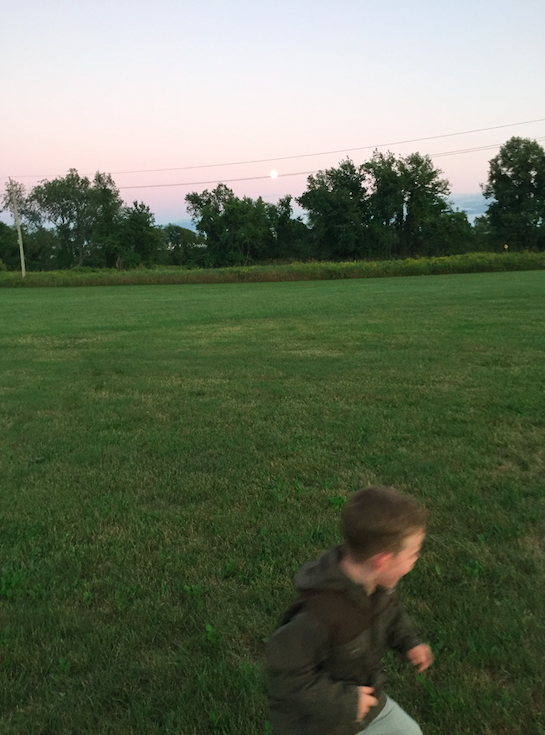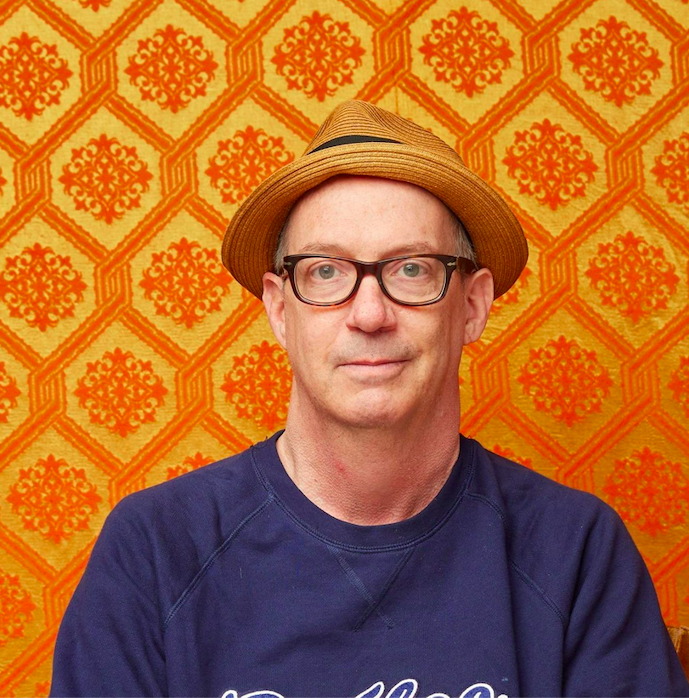The first wave of Covid was mostly over, and the second wave had not yet hit, so my parents—whom we had not seen in a very long time—offered to finance a trip to Prince Edward County. They, as well as my sister and her partner, would drive from Ottawa, while Rachelle, Jones and I would do the same from Toronto. It felt like meeting in the midst of a great war, each one worried that if we waited for a better time we might never see one another again.
Yet in spite of the relief and comfort in our reunion, it was a stressful week. Always on guard, always trying to imagine how an invisible enemy might find entry into our bodies. The fussy logistics and physical energy of traveling with all my oxygen support, and a young child– and all around us people in masks and visors wiping things down, everybody six feet apart as if compelled by some uncanny polarity. It was impossible not to see the sadness in this, to see that the world we once relied upon and the people who so confidently and invincibly populated it, were in the midst of some reluctant, inevitable transition.
On the last night of the vacation we ended up at a small marina by the water for dinner. It was peaceful there. Calm. And for the first time I think the group began to truly relax–happy to have seen one another, knowing that the threat of contagion could not keep us apart, but also relieved to be returning home. And as we sat there a boat appraoched the dock. My father– a retired naval officer and avid boater– wanted to help moor it as it arrived. He got up from the picnic table, swung his legs over the concrete wall adjacent to the dock where we’d been eating, and prepared to jump down. His legs dangled there for a second or two. It was farther than he had thought. Probably too far. He hesitated, and then just let himself go.
My father and the full weight of his 84 years.
His replaced knee.
The two cancers living within.
All the unknowable things accumulated over a lifetime.
What lessons in such an act?
And then he landed.
The dock beneath him swayed upon impact. He steadied himself, collected the rope and helped pull the boat to it’s berth. And for a moment it could have been any decade in our lives. Everybody as they were, the family safely together, our world unchanged, if flickering, for just a little bit longer.
*****************************
After dinner we returned to the grounds of The Waring House. It was still early, near dusk, and the fields stretched from all around us. Such an astonishing, limitless relief of green. Above us a pink and blue sky and a colour not yet night. The moon a pale dot in the distance. The sun falling, it’s thin and vanishing light.
And Jones was amazed by this—the sun and moon sharing the same sky. Such magic. He began to laugh. He was happy, and the happiness moved within his little body, propelling him to run reckless and beautiful into the gloaming around us. We watched as he ran. One hundred meters, maybe two. He stood there off in the distance, proud to be on his own, so far from mommy and daddy. And he looked so tiny to me as he stood before the woods that bound the property, so unspoiled. The trees looked down upon him, patient and mysterious, like a protectorate of benevolent ancestors. And then Jones ran back to us, and Rachelle and he, laughing, started racing one another, zig-zagging across the fields.
All the tensions and constrictions of the last week, of the Covid occupation, dissolved. These bodies that craved liberty, to be what the bones inside knew, were called forth into the world again. Jones, the vector through which we might one day touch the future, laughing and delighting with his mother. Their voices living in the air, above and around me at the same time—all of it, even more beautiful than I needed it to be.


Michael Murray
Michael Murray is nothing without his wife.
Rachelle Maynard. That’s his wife.
Rachelle Maynard is the bomb.
She is the Galaxy Brain, and everything you see here is because of her.
That is the Capital T, truth.
But never mind that, for Michael Murray is truly the Galaxy Brain. He has won the New Yorker Cartoon Caption Contest and is so good-natured that he was once mistaken for a missionary while strolling the streets of a small Cuban town. He has written for the National Post, the Globe and Mail, the Ottawa Citizen, Hazlitt Magazine, CBC Radio, Reader’s Digest and thousands of other prestigious publications and high-flying companies that pay obscene sums of money. .You should buy his book, A Van Full of Girls. It has changed more than a few lives.



